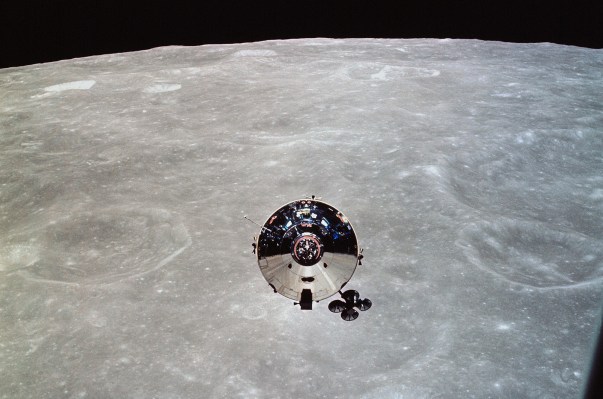
NASA’s trip to the Moon’s surface in July 1969 was preceded by a lot of preparatory missions – including Apollo 10, which involved a mock mission with everything but the actual landing. Astronauts Thomas Stafford and Eugene Carman flew a lunar module nicknamed ‘Snoopy’ by the agency nearly all the way to the Moon during Apollo 10, and then shot the module off into space once they’d completed their task.
There was never any intent to return Snoopy to Earth – it was sent into an orbit around the sun beyond the Moon after the astronauts completed their maneuvers and returned to the command module, and NASA did not track its trajectory. The effort to discover its location began in 2011, undertaken by a group of amateur UK astronomers led by Nick Howes – the same who now claim they’re “98 percent convinced” they’ve discovered where it ended up, according to Sky News. Howes further speculated that if they confirm its location, someone like Elon Musk could recover it and preserve it as a key cultural artefact.
Apollo 10 was the fourth crewed mission in NASA’s Apollo Program, and it involved flying the lunar module to within 8.5 miles of the Moon’s surface – everything up to the last landing sequence where the module would perform its powered descent. In keeping with the ‘Peanuts’ theme, the command module for the mission was called ‘Charlie Brown.’
Notably, the fuel tanks used in this mission weren’t provided enough fuel to return from the Moon’s surface – an intentional limitation imposed in case the astronauts flying the test run were tempted to jump the queue and become the first people to walk on the lunar surface, ahead of Apollo 11’s Neil Armstrong and Buzz Aldrin .
https://techcrunch.com/2019/06/10/nasa-snoopy-lunar-module-likely-found-50-years-after-being-jettisoned-into-space/Bagikan Berita Ini














0 Response to "NASA ‘Snoopy’ lunar module likely found 50 years after being jettisoned into space - TechCrunch"
Post a Comment